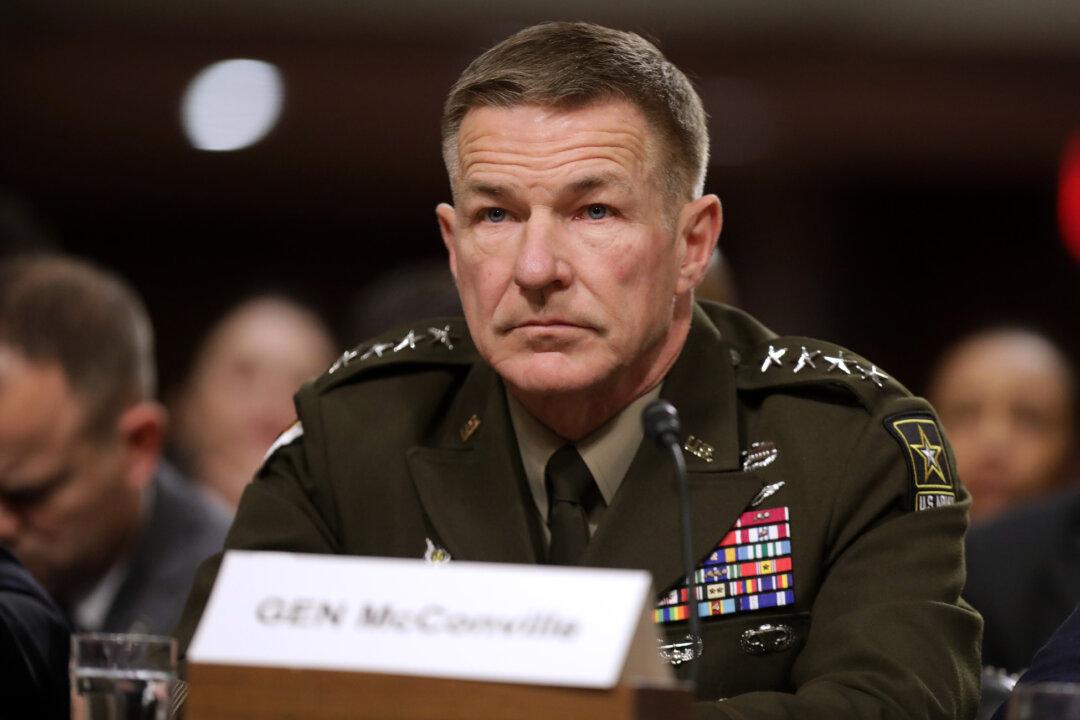The U.S. Army will be converting its cyber operations into an information warfare command in an effort to counter opponents such as Russia and China, a top U.S. general said.
The Army Chief of Staff Gen. James McConville appeared to confirm that proposals to transform the Cyber Command into the Army Information Warfare Command will be going ahead, dropping the information into a wide-ranging talk hosted by the Atlantic Council on Jan. 14 about the challenges of army modernization.





